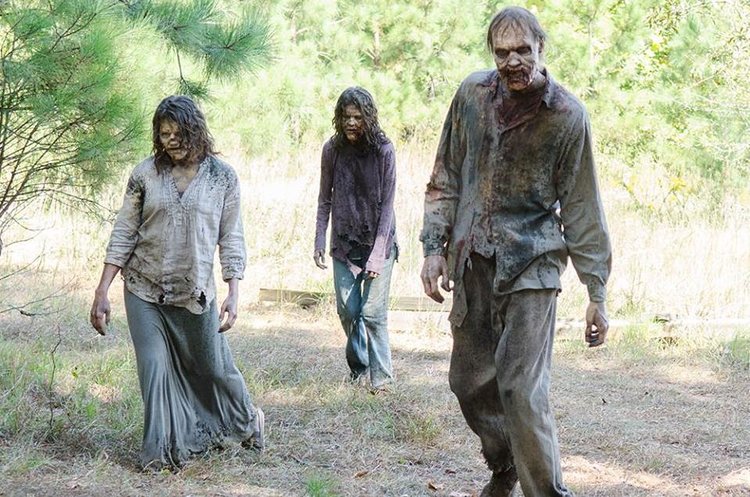By Lissa Harris
Oh, how I wish TV writers would stop clinging to the cliffhanger. Don’t get me wrong—it had its day and then some. The most dramatic of plot devices, a cliffhanger could simultaneously produce extreme amounts of anticipation and frustration for the viewers. And there was absolutely nothing we could do but wait until the next season’s premier to know the truth.
But we don’t need to wait anymore. This is the 21st century; we have access to information that no one could have predicted back when the television serial was born. From now until The Walking Dead Season 7 airs in October, we will be bombarded with contraband photos taken by grips and gophers on the set or stolen snippets of scripts leaked from the writers’ room. We may even learn who was killed in the cliffhanger when we see next season’s promotional poster, much like Game of Thrones’ nod to Jon Snow’s apparent survival. Personally, I would much rather live for the next six months with the sickness of knowing which one of my beloved characters died by Negan’s bloody swing of the bat. Today, a cliffhanger is a cop-out.
In past blogs, I’ve previously discussed the lazy writing that plagues Season 6 of The Walking Dead. Some plot lines simply changed or were completely forgotten about from episode to episode while others seemed to be wrapped up with an afterthought as if they never really mattered in the first place. For me, the only substance left in the show is the philosophical debate illustrated through the interplay of Carol and Morgan.
How much human fear justifies the denial of mercy?
Can survival and compassion co-exist in this world?
Is there truly a new world order?
Carol has always been the one willing to do anything to survive. She has lied and stolen, killed sick people, and even threatened and killed children—all in the interest of her own survival. As viewers, we sometimes felt her actions were justified, other times not. She was sent away after Season 3 only to come back to save the day at the prison. Season 6’s episode 13 was her wake-up call. She saw herself in Paula, the red-headed Savior who held Maggie and her hostage. My husband thinks it’s funny when Carol starts acting like the timid housewife. But I know she’s not acting as much as she’s remembering. And each time she “remembers,” another piece of her gets broken off and replaced with…what?
Morgan’s epiphany came a few episodes back in Season 6 when he encountered a man with a goat who believed unequivocally that we need not lose our compassion in this new world and that “all life is precious.”
This season’s finale is their showdown. Carol tells Morgan that she left Alexandria because she doesn’t want to be in a position to have to kill for those she loves. “If you care about anyone, there’s a price, Morgan, and you’re gonna have to pay it,” Carol says. “I have and I can’t anymore.”
Morgan responds that “everything’s about people.” He tells her that being alone means certain death. It’s no coincidence that through much of this episode Morgan rides a white horse. When Morgan kills to save Carol’s life, we think the debate is over. Then we meet the Knights in football pads, and we’re reminded that the white horse wasn’t Morgan’s. They offer help and hope.
So how does the much-anticipated entrance of Negan and his barb-wired beauty “Lucille” fit into the discussion?
My husband and I have always referred to Jeffrey Dean Morgan as “the poor man’s Javier Bardem.” The music may have been more frightening than his Negan, though the drawn-out finale was suspenseful for sure. But Negan’s monologue didn’t sound compelling. The only high point was the amazing bit of insight when he refers to Carl as “the future serial killer.” I think JDM really tried, but the writing betrayed his menace.
The power of JDM’s performance remains to be seen but his character’s impact has been felt. It’s the idea of Negan and his bat that adds a new layer to the debate. He’s meant to be the evil we never imagined. He is the post-apocalyptic, psychopathic ruler General Bethlehem (Will Patton) we saw in “The Postman” (1997) and more recently the Commandant (Idris Elba) in “Beasts of No Nation” (2015). Clearly Negan doesn’t feel regret, therefore Carol’s philosophical rules don’t apply to him. The new world order didn’t change him—it changed to better suit him.
Those of us who are paying attention to this show don’t care as much about whom Negan chose to kill. We care more about why.


























